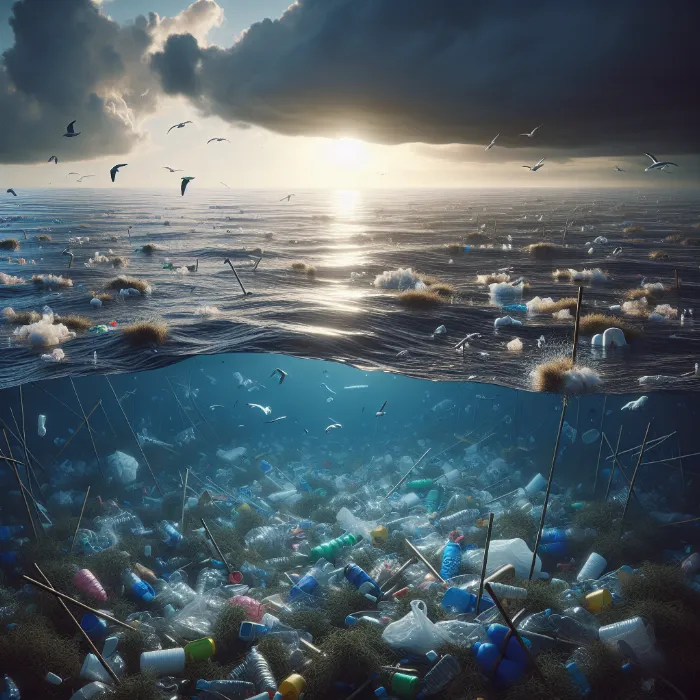Discover the disturbing rise in oceanic plastic pollution and what it means for our environment, as revealed in the latest comprehensive study.
New Study Reveals Escalating Crisis of Oceanic Plastic Pollution
As the world grapples with climate change, another environmental issue is quietly worsening - the pervasive spread of plastic in our oceans. Recent research highlights an alarming increase in plastic pollution, threatening marine life and global ecosystems.
Introduction
Every year, millions of tons of plastic waste end up in the world's oceans, a situation that has escalated into a global crisis according to a new study published in the Journal of Marine Science. This comprehensive research paints a worrying picture of the scale and impact of ocean plastic pollution.
Access the full study here.
The Scope of the Problem
- Over 8 million tons of plastic are dumped into the oceans annually.
- Approximately 90% of floating marine debris is made up of plastic materials.
- Common items such as water bottles, plastic bags, straws, and synthetic fibers from clothing contribute to this pollution.
- Microplastics, tiny particles resulting from the breakdown of larger plastic pieces, have been found in even the most remote marine regions.
"The situation is dire," explains Dr. Helen Cartwright, a marine biologist and lead author of the study. "Plastic pollution not only harms marine organisms, but it also enters the human food chain through seafood, affecting human health."
Impact on Marine Life
Marine creatures, from the smallest plankton to the largest whales, ingest plastic debris, mistaking it for food. The consequences are often fatal. The ingestion of plastic leads to blockages in digestive systems, malnutrition, and exposure to toxic chemicals.
"We've extracted plastics from the stomachs of over 1,000 marine species," notes Dr. Cartwright. "Urgent action is needed to stem the tide of plastic entering our oceans."
A striking case study documented in the vicinity of the Great Pacific Garbage Patch reveals significant impacts on turtle populations, with over 60% affected by plastic ingestion.
Efforts to Combat Plastic Pollution
Countries and organizations worldwide are taking steps to address the issue. For example, the International Oceanic Plastic Alliance (IOPA) has initiated several projects aimed at cleaning up plastic waste and preventing its entry into marine environments.
Community-based recycling programs, bans on single-use plastics, and advances in biodegradable materials also contribute to the reduction of plastic waste. However, much more needs to be done.
Conclusion
The study on oceanic plastic pollution serves as a wake-up call to the world. Without substantial global changes in how we produce, use, and dispose of plastic, the situation will only worsen, with severe consequences for marine ecosystems and human health. Everyone from policymakers to individuals has a role in solving this crisis.















Comments 1
samrock
this information is correct. we need to take action on it. and play our role in cleaning the sea